Behind every child sponsored by Compassion, there’s a whole team of people—all working to ensure each child feels known, loved and protected. We want every child to be given all the care, skills and encouragement they need to reach their God-given potential, and below we give an insight into some of the dedicated people who strive to make that a reality.
We spend years building up strong partnerships with local churches. These churches are already doing incredible work, and by joining together we can strengthen their resources and professional expertise in child development to serve their local children and families.
Churches are often working in isolated, challenging situations where the needs can feel overwhelming and so our global network of partnerships brings great encouragement: no church has to struggle alone, but is supported and equipped, prayed for and cheered on by their brothers and sisters in Christ around the world.
OVERSIGHT AT COUNTRY LEVEL
NATIONAL DIRECTOR
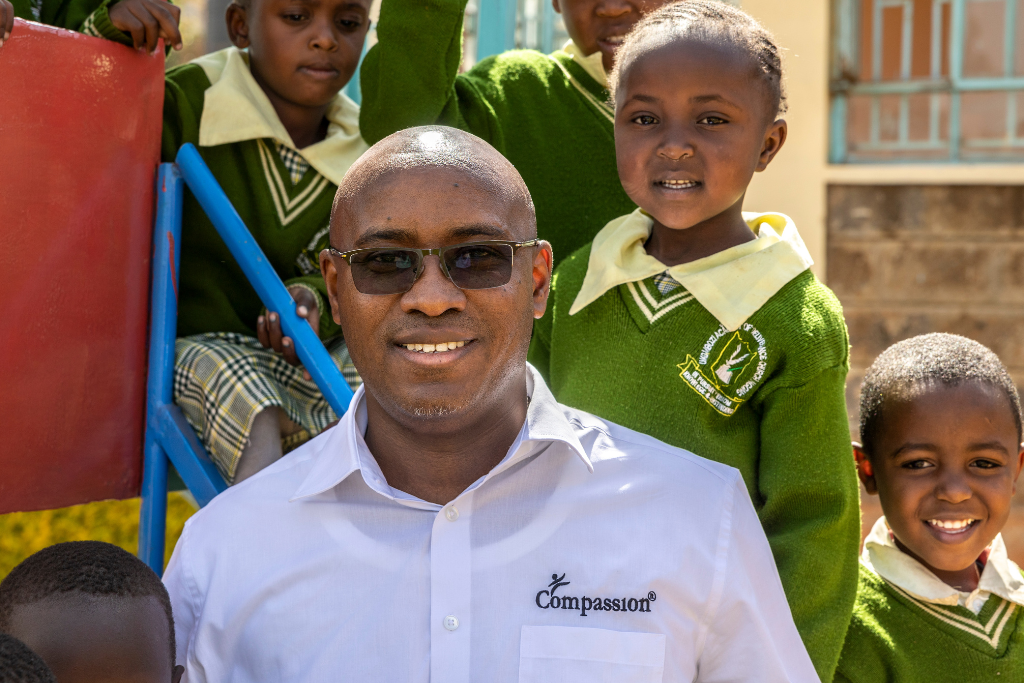
Samuel Wambugu is National Director for Kenya: “We have the privilege to work with our 466 Frontline Church Partners across the country with whom we share the heartaches and victories.
“We recognise ours is a task that requires all hands on deck, and we are keen to leverage strategic partnerships. Compassion Kenya is grateful for the invaluable contribution made by our supporters, church partners, staff, and programme participants (babies, children, and youth). We also acknowledge the contribution of key stakeholders, including the support from various government agencies and other strategic partners. We believe that together we will continue to advance the achievement of important life outcomes for the registered programme participants and release them from poverty in Jesus’ name.”
Each of the 29 countries where we work has a national office. The National Director has oversight for all Compassion’s work within their geographical region.
National Directors are the legal representatives of Compassion to the local government and other partner organisations. They’re responsible for the strategic implementation of programmes in ways that are appropriate, so are tasked with understanding what local church partners need to be effective.
National Directors provide overall spiritual leadership and shoulder the ultimate accountability for the performance and integrity of the work in their geographical area. They lead the way in advocating for children in their nation and in supporting communities and families in overcoming the complex barriers of poverty by having a long-term development view that empowers people to gain control and freedom to build a better future.
It’s a role that’s as rewarding as it is demanding. We’re so grateful for our passionate, conscientious leaders who serve sacrificially to see children and their families released from poverty.
LOCAL CHURCH PARTNERSHIP FACILITATOR
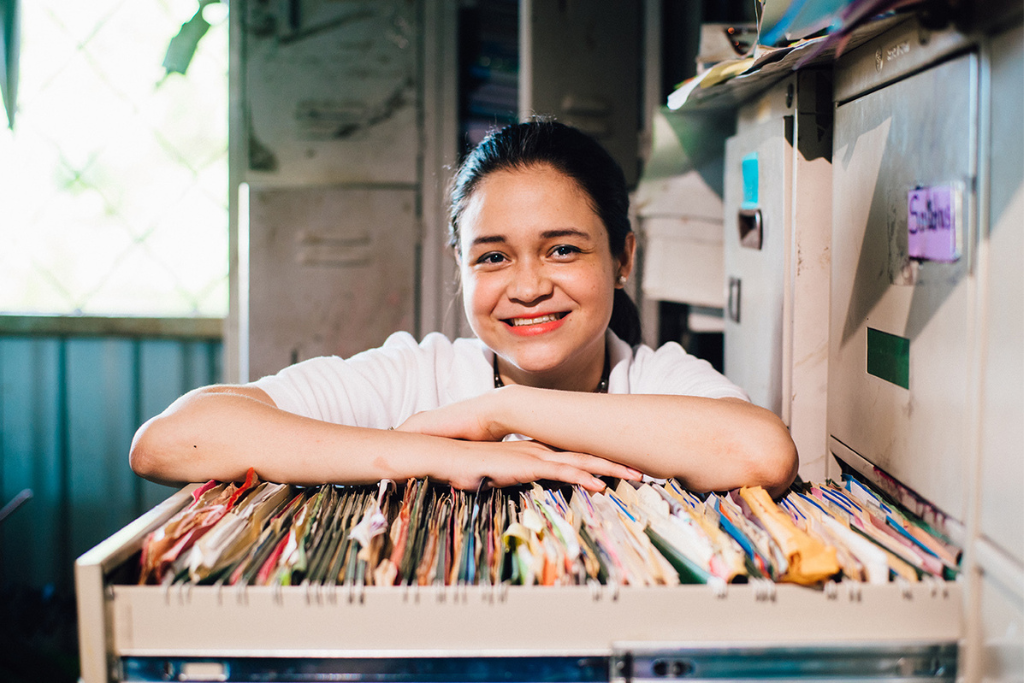
We believe lasting change is brilliantly realised through the local church. Compassion’s exclusive partnerships with the church means they understand the needs of individuals and their community and how best to meet them, rather than applying a ‘one size fits all’ response to poverty. Our Local Church Partnership Facilitators are an amazing group of men and women who care for 10 to 15 of Compassion’s partner churches within a set area.
As Sandy in Honduras explains, “I oversee ten churches, and I visit each one every three months. We talk about what activities they are doing. I help them adjust to different changes and provide advice. Compassion trains us, and then we go on to train the churches. My favourite part of my job is building relationships with churches – sharing with brothers and sisters about the fruits of their work with children and the community. We know our jobs bring a big blessing to these kids.”
ROLES WITHIN A PROJECT
Since we contextualise to local situations, the exact make up of a project varies. Responsibilities might be amalgamated if a staff member has the relevant skills: for example, a tutor might also be the Child Protection Officer. Broadly, however, the roles below are found at each project in a structure that best suits their staff.
Project activities are usually held on Saturdays or during the week before or after school. The time a sponsored child spends at their Compassion project will depend on their age and the country and community in which they live. Here they are known and loved by a team of dedicated staff who go the extra mile to serve them.
PROJECT DIRECTOR
The Project Director oversees the running of the project and provides for the welfare of every Compassion-supported child, and managing their team of staff and volunteers. Servant-hearted men and women, they’ve often given up well paid jobs to serve their community.
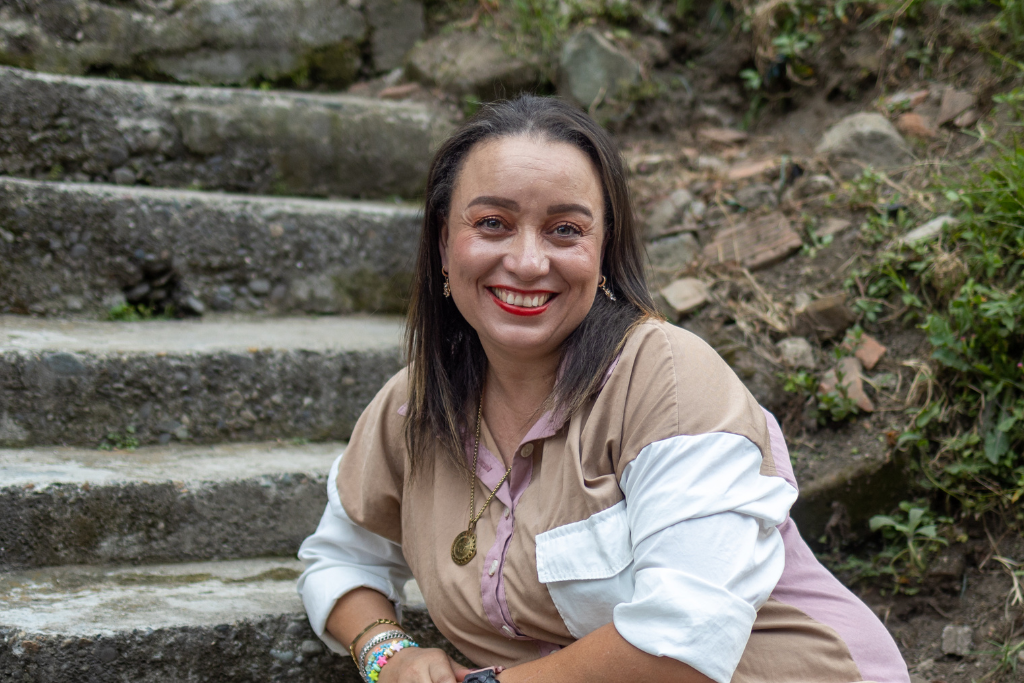
“Children are our reason to work. We are here to care for them, to see them grow,” says Diana who has worked as a Project Director in Colombia for 23 years. Starting as a volunteer, Diana soon became a firm favourite with the children and families. Eventually she became the Director, saying “God called me to work for those most in need, for the children and teenagers who don’t have a voice. Being Project Director is part of God’s purpose for my life.”
PROJECT ACCOUNTANT
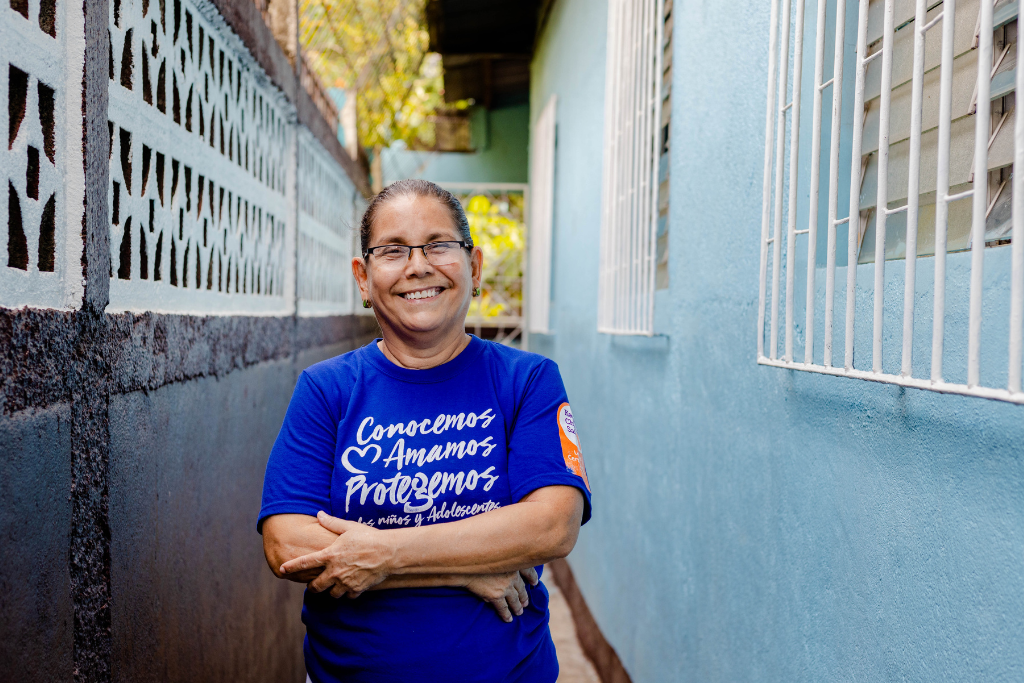
Maritza is an accountant at one of our Nicaraguan projects. She looks after the project’s financial and administrative processes.
“I know I’m not directly working with children anymore, but I’m still looking after their interests,” says Maritza. “I oversee the gifting process, I make sure the financial aid they receive gets to them in time, and I pay close attention to the project’s economic stability so that we can continue serving the children in the most effective way possible.”
SOCIAL WORKER
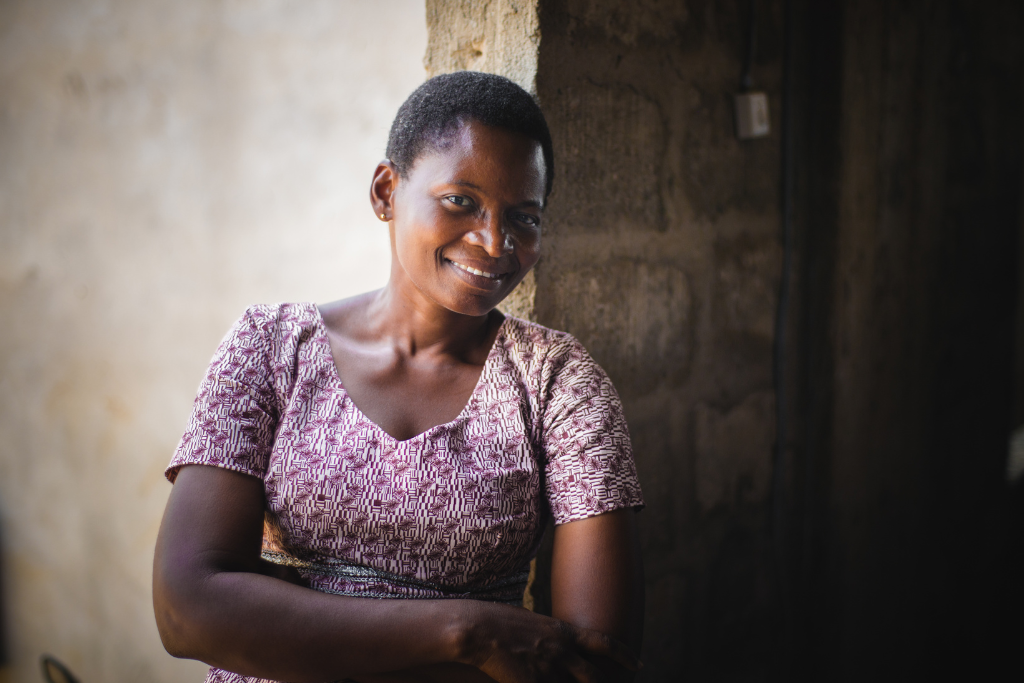
Komina offers a glimpse into her work: “As a Social Worker, I’m always on the go—visiting children and checking in on their families. I visited a child once who was severely malnourished. She had no hair and a swollen stomach. Most people expected her to die. We took her to the hospital, and several months later, she was transformed. If you saw a picture of the child, you’d see the difference. That’s what makes me so glad about my work.”
HEALTH SPECIALIST
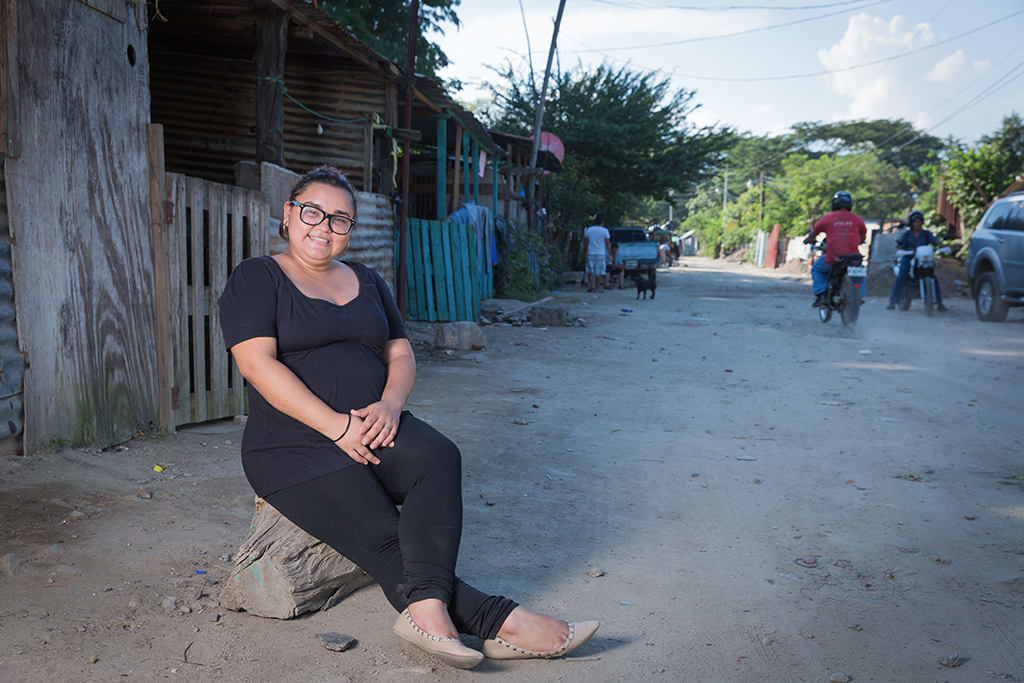
Paola is a Health Specialist for the local church partner. She explains how the church’s links within the community creates the opportunity for children to receive health interventions as needed.
“The church has built strong relationships in the community. Whenever children need free medical tests, they can get them now; because of the church’s reputation for its work with children, people are happy to access their services.”
PROJECT TUTOR
Another key staff member at the Compassion project is a child’s tutor. Children and youth are put into groups based on age. Each age group is assigned a tutor who completes weekly lessons and acts as a mentor to each child.
When a young person turns 13, their tutor will help them go through a workbook called ‘My Plan for Tomorrow.’ This equips the young person with the tools and resources they need to identify their skills and interests, set future career goals and create a step-by-step plan to achieve these goals. You can see on our Journey Map how the Compassion programme progresses alongside the changing needs of children as they develop towards adulthood.
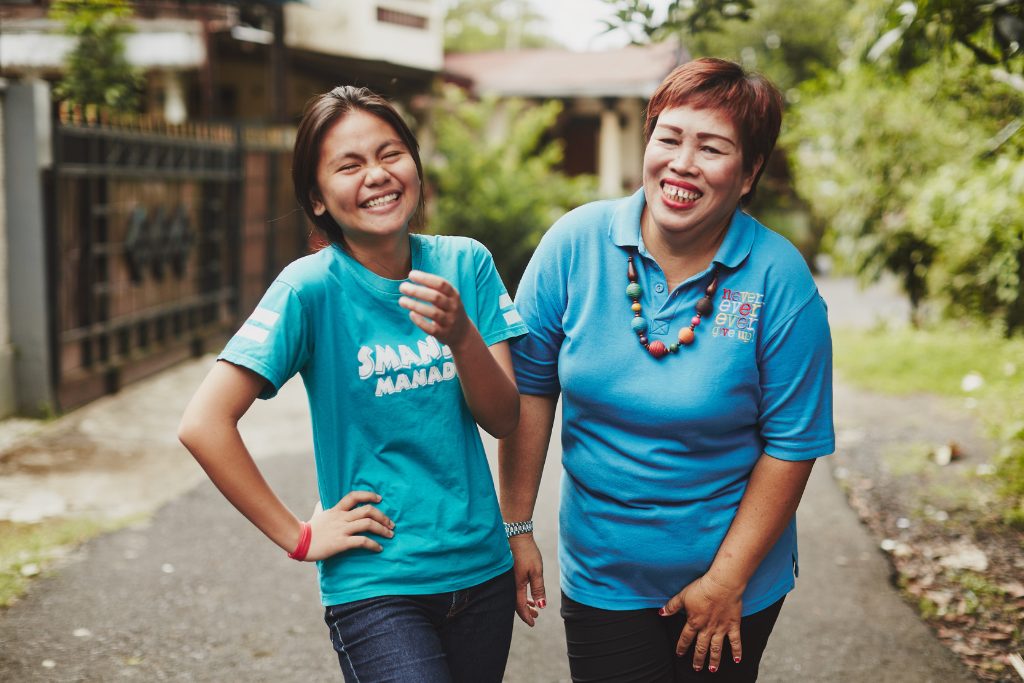
As Joice, a tutor in Indonesia, says: “Our motto is never, never, never give up. Those words lift our spirits to do our work. My passion is to make children here who will be leaders. Our church’s mission is for the young generation to shine like stars—to have an impact in their community, in their own field of expertise.”
VOCATIONAL TUTOR
As students grow older, their tutors speak with them about what kind of professional or vocational skills they might like to learn. There’s a tremendous range of opportunities open to them, which will reflect what’s most relevant for their particular community and context: hairdressing, plumbing, computer science, sewing, mechanics, cookery and much more!
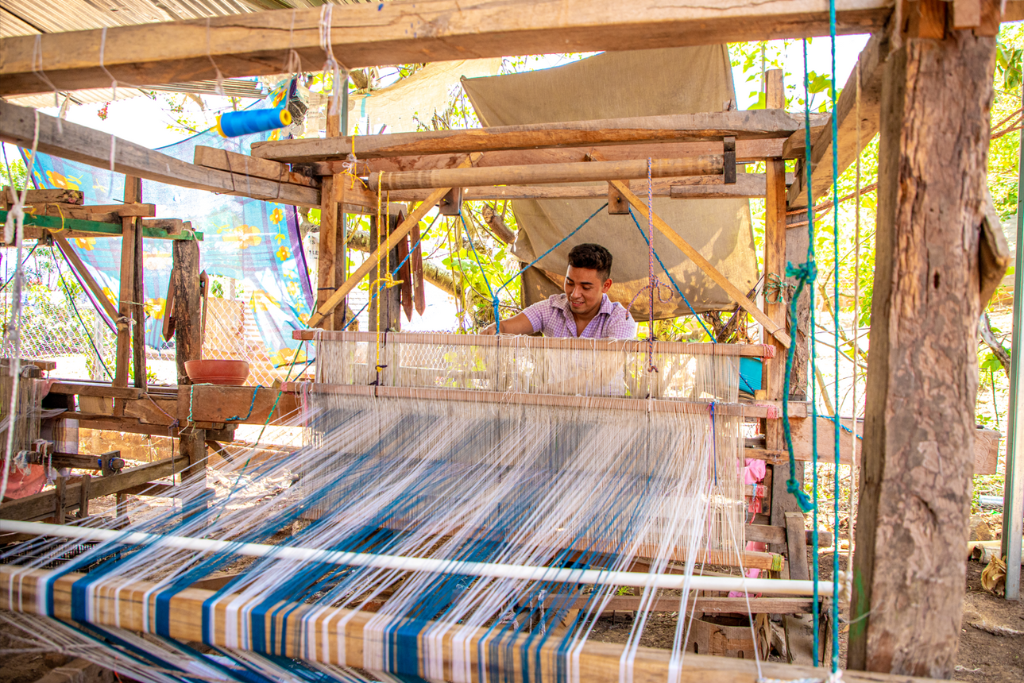
Mauricio teaches weaving. “I deeply understand my students because I grew up like them,” he says. “I came from a family that struggled with many needs… I try to guide them to become good people and wise professionals who use their talents to improve their way of life.”
Mauricio also helps to find job opportunities for his students. “Some of our children’s families have their own textiles machines at home. When a teenager learns the trade well, they can help their family in the business and support their families to have food on their tables.”
CHILD PROTECTION OFFICER
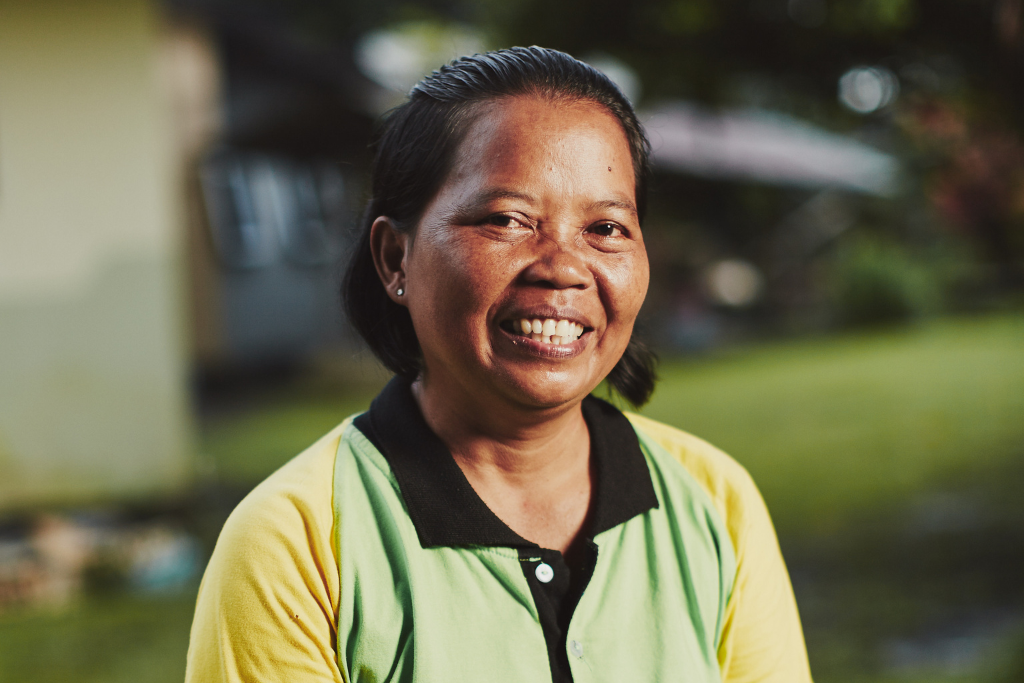
Child protection is foundational to our core values. When agreeing to work with a new church partner there are very clear safeguarding and child protection expectations set, for which partners are held accountable. Each church partner has a Child Protection Officer whose duties include ensuring robust reporting processes, compliance with compulsory child protection training, and safer recruitment processes, such as clear documentation and background checks.
Organisation-wide, there is a code of conduct, which all staff and volunteers are expected to sign annually and be held accountable for upholding. There is regular refresher training, tailored to cultural issues relevant for the context of each community, such as online sexual exploitation, young marriage, or FGM.
Poverty creates a pressure on families which can put a child at risk. One of our Child Protection Officers in Indonesia, Derwinte, explains how she goes about educating children to keep them safe. “At the project I co-ordinate all the child protection issues, and I educate parents. [For the children] I teach six main topics including ‘Health rights’, ‘Not being pressured’, ‘How God views me as a person’ and ‘The parts of our bodies which can and can’t be touched’.
“The most important thing is that children know their rights and understand they cannot be violated by adults or by any other person. I help children to be brave enough to tell others if they have problems.”
COOK
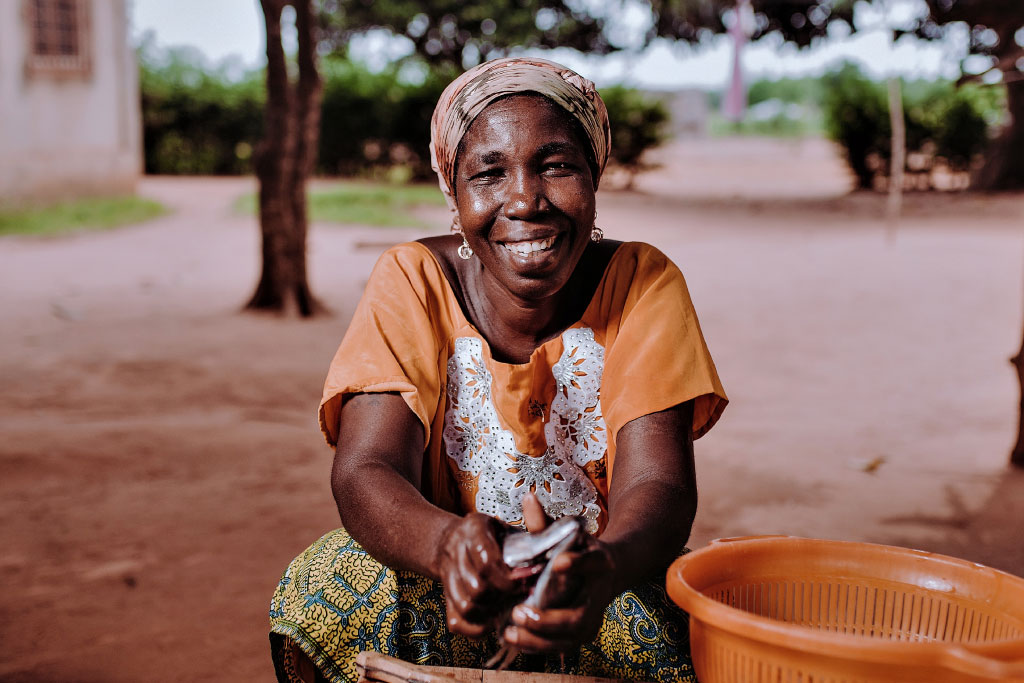
Eating meals and sharing snacks together creates fellowship, and for many children it’s a highlight of their day at their Compassion project. Doreen, a Compassion graduate in Uganda, now runs a home protecting girls from trafficking and abuse. She recalls, “We looked forward to that beautiful meal every Saturday. The love we got at the Compassion project was strong and it was genuine.”
“On Saturday morning, we bring the clean dishes out and pray. After praying, we divide into groups. One group prepares breakfast of tea and porridge. The other groups prepare lunch. The menu is given to us by the project director. We cook rice, couscous and foufou (mashed yams).”
VOLUNTEERS
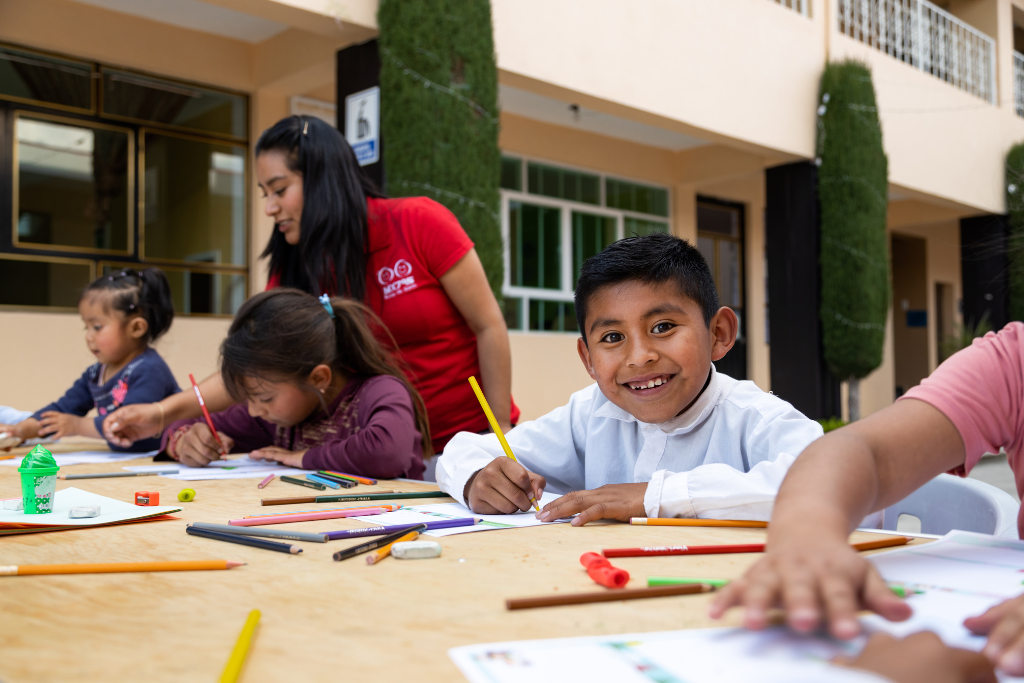
A striking number of Compassion graduates return to volunteer at their local project. Maritza in Mexico was enrolled at a Compassion project from the age of nine. She’s volunteered at the project ever since she graduated from university with a degree in Chemical Engineering.
“I love being part of the project—it’s priceless to see the children’s faces when they receive a letter or a gift,” she says. “I have faced many great challenges in my life, but God has always been with me—and many kind and generous people have contributed to my life. Now, it is time for me to contribute for the next generation.”
AND THAT’S NOT ALL!
Outside of the project there are other committed adults who make up each child’s support network…
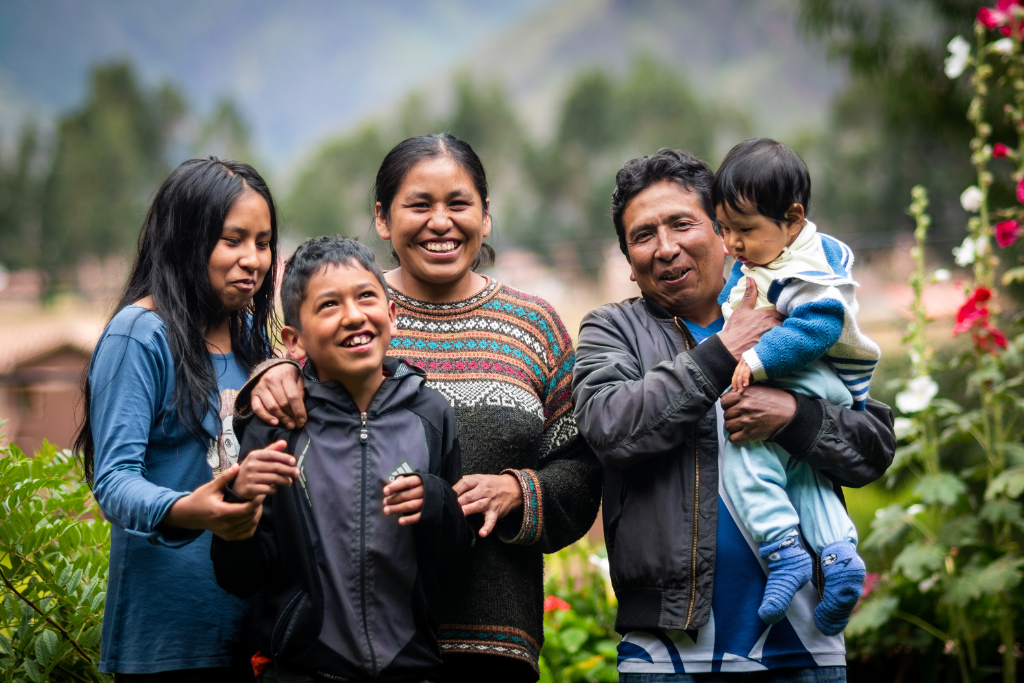
PARENTS AND CAREGIVERS
Child development starts at home. Children in Compassion’s programmes usually live with a parent or caregiver such as a grandparent or other relative.
Compassion’s programmes support and empower caregivers, recognising their primary role. Our staff and volunteers do this by offering encouragement, well-being and parenting workshops, healthcare and income generation support for small business ventures, where needed. Choices, such as how a child might spend a financial gift from their sponsor, are discussed with the child’s parents so that they are the ones making decisions, rather than project staff.
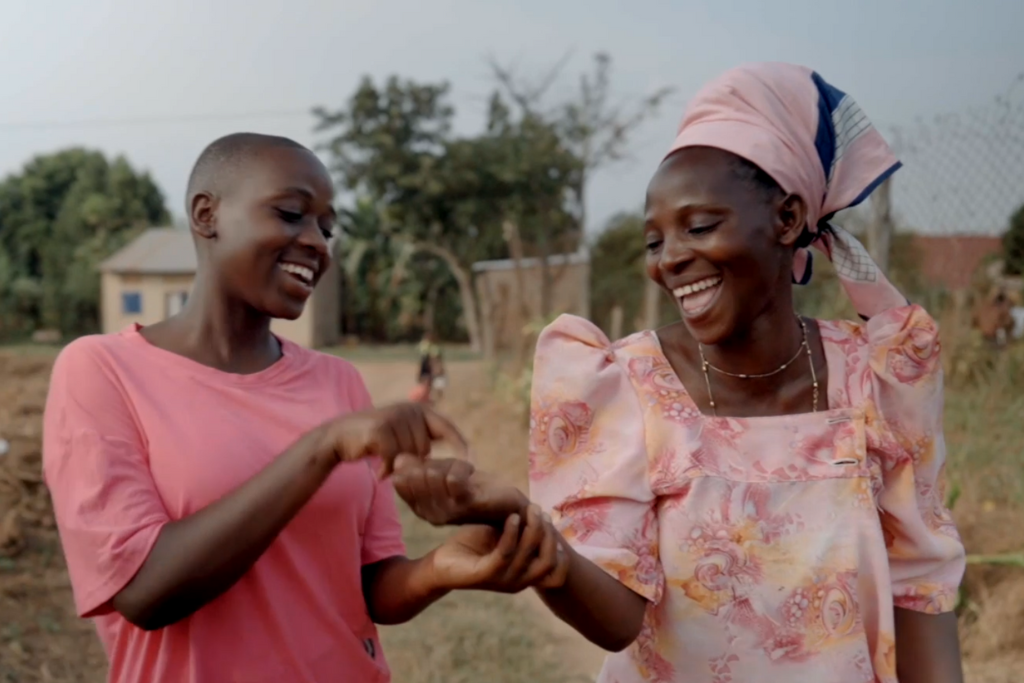
Devine is the mother of Compassion participant, Monica from Uganda. She says, “I struggled after my husband left me with our four children. Monica was just two years old, and I was breast-feeding our youngest baby. I was scared about how I would manage. The church visited us and helped provide a better home. Monica was sick with pneumonia and the church supported us with all the medical care she needed. And it was such a joy when her school fees were paid for! She was given all the materials she needed to attend – she’s never missed a day.”
CHURCH PASTOR/CHURCH YOUTH WORKER
Every Compassion centre is run by a local church partner. This ensures our programmes are locally led and that every child and family is connected to a church. There they can learn about Jesus, but no one is required to be Christian to join a project.
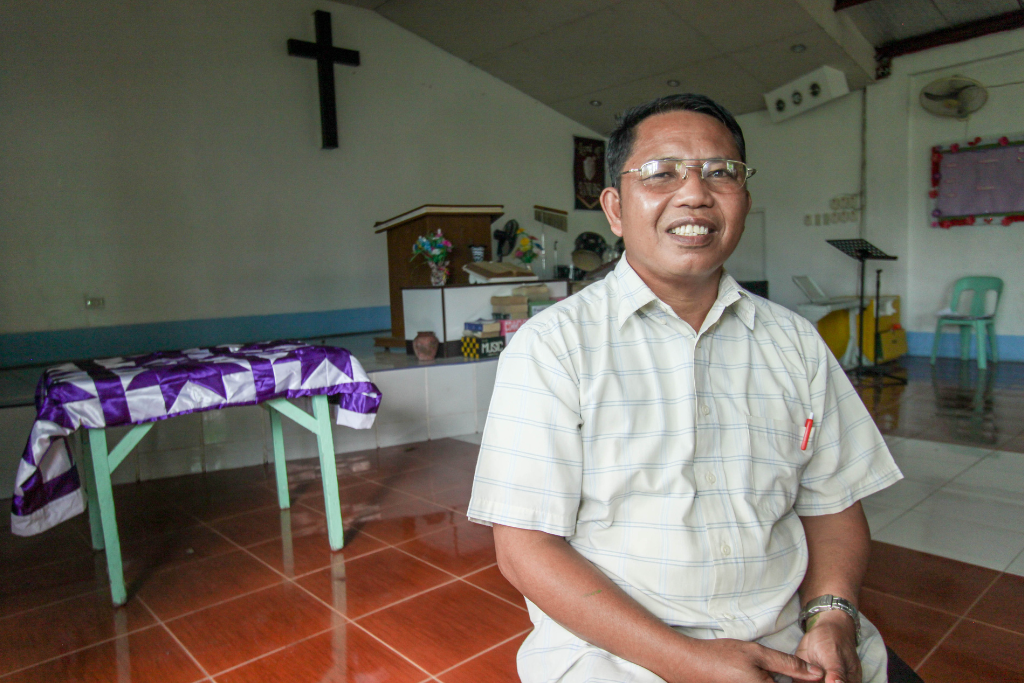
Pastor Ganiban is a pastor in the Philippines. “We are motivated by the word of God to help, we always look for the best interest of others. It is important that we help those most in need.”
TEACHER FROM SCHOOL
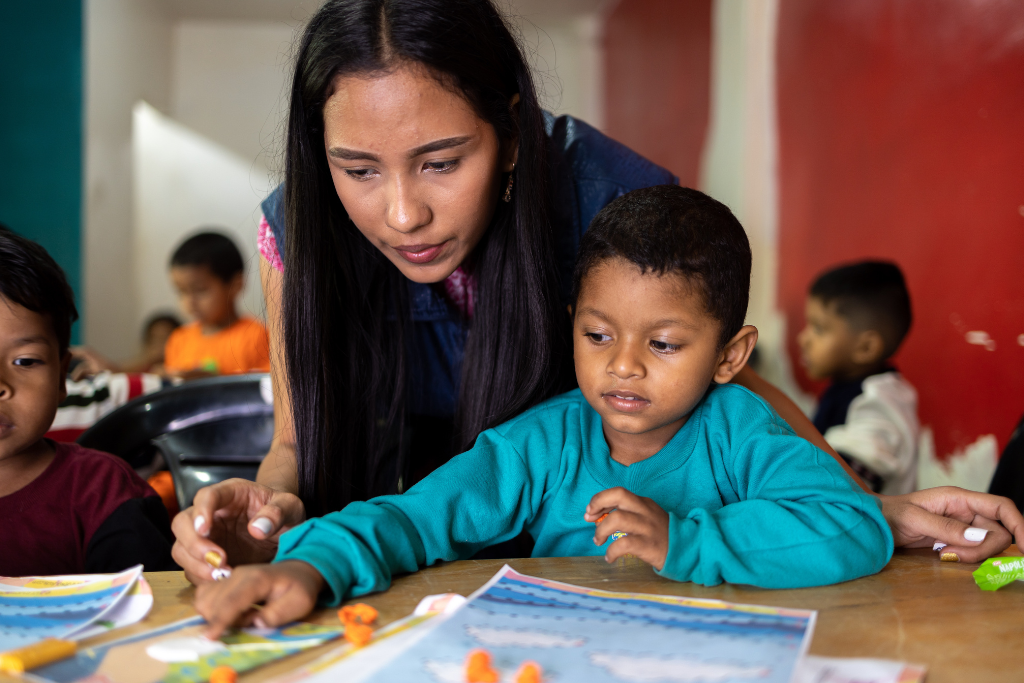
The Compassion programme removes the obstacles preventing children from accessing formal schooling or vocational training. Compassion projects aren’t schools, instead the support gives children access educational opportunities and training, such as by covering school fees, or providing for uniforms, stationery and schoolbooks.
The lessons at Compassion projects (usually on a Saturday, but sometimes on midweek afternoons) aim to support children with extra tutoring to bridge any gaps that poverty has caused in a child’s education, perhaps due to ill health or having to work.
DOCTOR
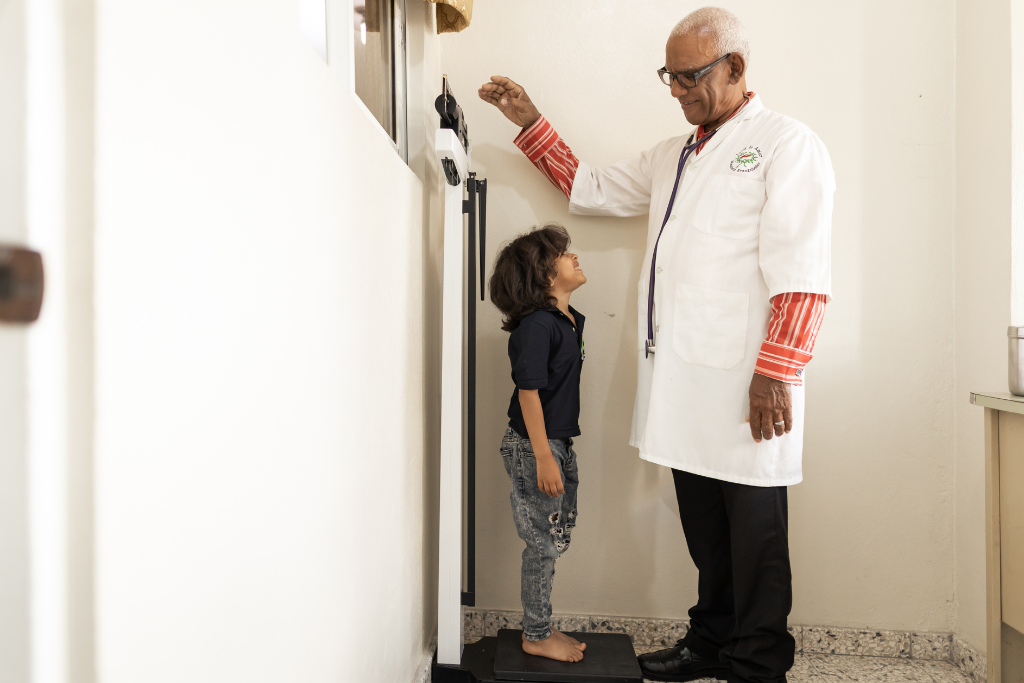
Projects link with local services and enable the people they support to access them, covering medical costs. Children also receive an annual health check-up.
One project in El Salvador works with Dr Luis. “It is a great honour to collaborate in this great work with the support of Compassion, because health is vital for the optimal development of the children of this community.
“It is difficult to see a child in poor health, to see their parents desperate to help them, but without resources,” he says. “That’s why I love to volunteer here, because God uses me to be part of the integral treatment in the lives of these children and help them move along a path of development, health, wellness, towards a much more hopeful life.”
COMPASSION SPONSOR
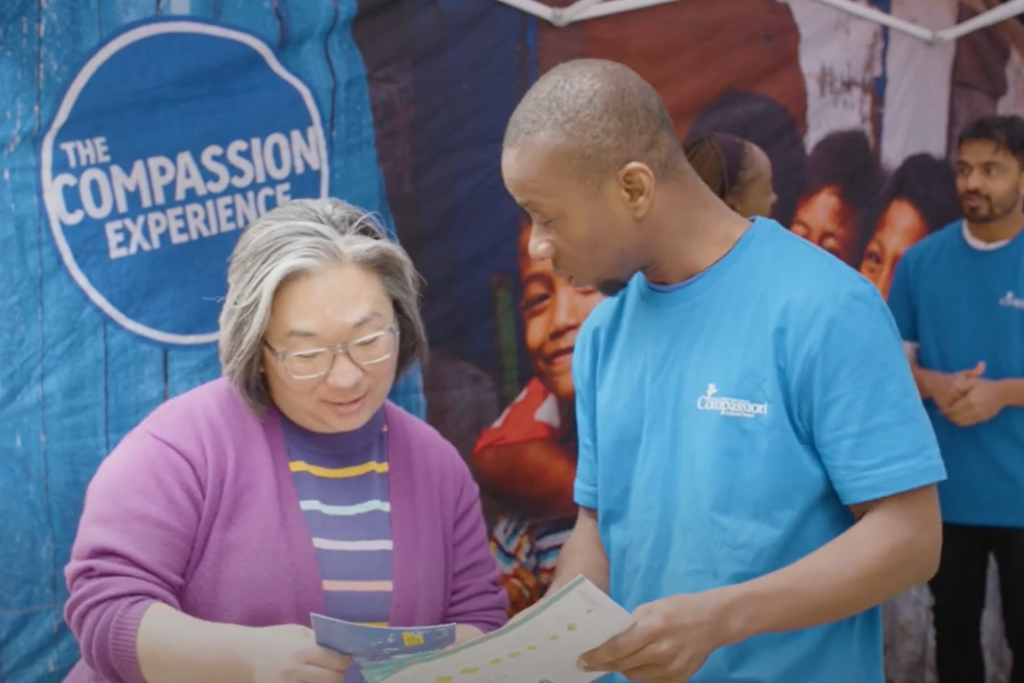
Rounding off this list: Compassion sponsors! Sponsors play a significant role in a child’s development. Compassion’s child sponsorship programme provides the resources for children to thrive. Through letters and prayers, sponsors provide life-changing encouragement, inspiration and motivation.
Compassion graduate Ria, from the Philippines, says this: “Knowing that someone cares for you, it changes you. I thought, if this stranger is caring for me, then the Lord is, too. That’s how I felt the love of Jesus—it was through my sponsor and the people at my Compassion project.”
“I was released from the poverty of feeling helpless, hopeless and like there were no other choices.”
Compassion UK sponsor, Hilary, says: “To support a worthwhile and trusted charity is one thing—but to have a direct and real relationship takes it to another level. I truly look forward to receiving letters from Blessing, filled with hope and chatter, and have had the privilege to watch her grow from a young child to a young adult. I’m so thankful that Compassion provides this wonderful opportunity to participate in and support the life of another human-being through sponsorship and faith.”
A crucial role in a child’s development is waiting for you—




